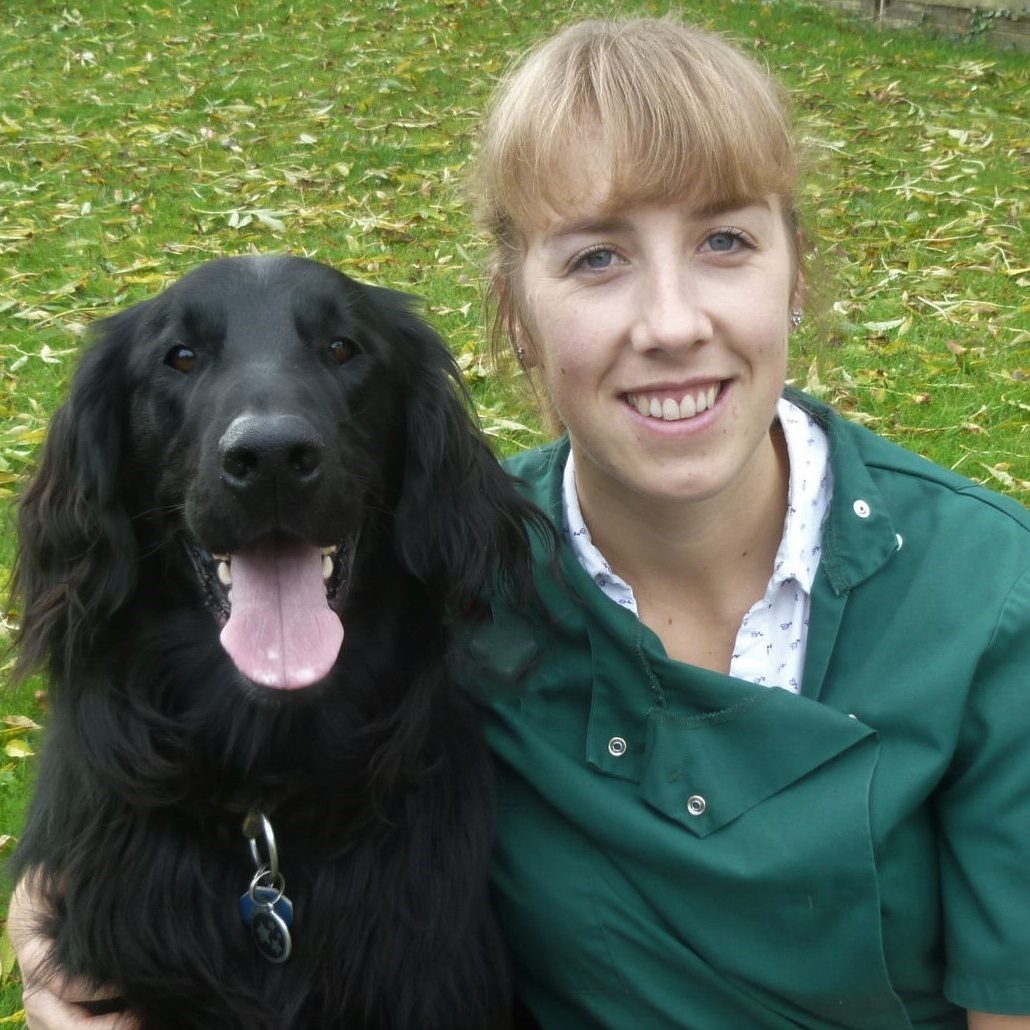What dog breed lives the longest?
We uncover the longest-living dog breeds so you can choose the perfect long-term canine companion

One of the hardest things about being a pet parent is having to say goodbye to our much-loved pets, so doing some research on which dog breed lives the longest can help you choose a canine companion that will be part of your family for years to come.
Research on how to convert dog years to human years has highlighted that size does matter when it comes to longevity, with the smaller dog breeds generally having almost double the expected lifespan of the largest breeds.
Giant breeds, like the Great Dane, tend to age in fast motion and rarely exceed eight years, while many terrier breeds can live up to 20 years with the right care. We dug deep into doggy longevity to figure out which dog breed lives the longest, here are the longest living dog breeds...
Which dog breed lives the longest?
Jack Russell Terrier

This small but mighty breed might be the one most likely to live the longest. The alert and lively Jack Russell Terrier is a fearless and tenacious little dog who’s always ready to work.
Confident, playful, and affectionate, this high-energy dog breed loves being active and has an overall zest for life, which is a good thing considering they can live to an impressive 20 years.
Shih Tzu

It’s hard to resist the sweet expression of the shih tzu, who has an affectionate, outgoing, and playful nature that makes them ideal for families with children. Originating from Tibet and with a history of being a lapdog, the Shih Tzu is highly human-orientated and its ability to sit quietly makes it one of the best dog breeds for remote workers.
Living up to 18 years, this little cutie will provide years of loyal company and entertainment.
Toy Poodle

With a lifespan between 10-18 years, the toy poodle is wickedly smart with a steady character and self-confident nature that sees them being up for anything.
They may look like just a pretty face, but this breed sees itself as a human being and expects to be treated like one.
Dachshund

They may have a long and low silhouette, but the feisty little dachshund has a bold personality and a friendly and inquisitive nature.
While they won’t win any awards for long-distance running or jumping, they’re super smart with a strong stubborn streak, which could be why this “sausage dog” sticks with their owners for up to 16 years.
Chihuahua

Small but sassy, the spirited Chihuahua knows that good things come in small packages. One of the national symbols of Mexico, this plucky breed oozes charm and a big-dog attitude.
Compact and confident, the Chihuahua has a lifespan of between 14-16 years, and like their cousin the Chorkie, they’re one of the best dogs for apartments.
Pomeranian

Small on stature but with a larger-than-life plucky personality, the Pomeranian isn’t one to back down from a fight, even when their opponent far outweighs them.
With their smiling foxy-face and vivacious natures, the intelligent Pomeranian’s long life expectancy of 12-16 years, makes them the ideal companion.
Yorkshire Terrier

Affectionately known as Yorkie’s, the Yorkshire Terrier has a feisty, tenacious, and brave heart with a sprightly and affectionate nature that loves being the center of attention.
With bags of personality and an average lifespan of 15 years, the Yorkie will shower their owner with years of love, laughs, and a close bond that makes them hard to replace.
Maltese

Gentle and charming, the Maltese has an elegant appearance and a playful demeanor. Highly agile with tons of love and affection to share, the Maltese is an exceptionally healthy breed that can live up to 15 years.
You’ll need to keep this little sweetheart close though, as they’re deeply devoted to their humans and prone to separation anxiety if left alone.
Australian Shepherd

The smart and work-orientated Australian Shepherd has an exuberant nature and loves nothing more than spending its time being active in the great outdoors.
It’s likely all that running around that makes this breed generally so healthy, with most Aussies living between 12-15 years.
Beagle

Friendly and curious with a loving personality and happy temperament, the beagle is a clever breed with plenty of energy to burn.
Vocal with a need to chatter frequently through barks and howls, this sweet-natured medium-sized dog has a lifespan of between 10-15 years, with the oldest known Beagle living an impressive 27 years!
Why do some dog breeds live longer than others?
When it comes to which dog breed lives the longest, both nature and nurture are at play.
“Genetics play a big part in your dog’s health and longevity,” remarks Dr Rebecca MacMillan, companion animal vet. “Certain breeds live longer than others and puppies bred from healthy dogs are more likely to have a greater lifespan, too.
“So, picking your dog wisely in the first place will help to increase their life chances. But there is plenty that you can do over the course of your dog’s life as well.”
It’s not just in the genes, though, as Dr MacMillan explains.
“Keeping your dog at a healthy body weight is essential to their health and longevity. I am always having discussions about weight with owners and for good reason. Studies show that a dog being overweight can significantly impact lifespan and put your dog at greater risk of conditions like joint disease, cancer, and diabetes.
“I always recommend that owners get used to body condition scoring their pets, checking that they can feel their dogs’ ribs and see a waistline,” advises Dr MacMillan. “Offering the right amount of a good-quality diet is essential to your pet’s health, so check the packaging for feeding guidelines.”
It’s also key to keep your dog in regular exercise for whole body and heart health. Dr MacMillan also advises regular health check-ups with your dog’s vet.
“This allows your dog to receive preventative care like vaccinations and anti-parasite treatment but also means any problems can be spotted sooner.
“Vets are very good at noticing subtle changes or teasing out information from pet owners about their dog’s behavior and health,” she adds. “Finding a problem earlier usually makes it more treatable, which could help your pet to live longer.”
How do you care for senior dogs?
According to Dr MacMillan, the exact care that your dog will require as they age very much depends on their health status.
“Some aging dogs can remain spritely and in good shape well into their teens, whereas others will start to decline physically or mentally,” she explains. “Conditions like diabetes and heart disease can creep in, which will need veterinary care. This could involve more trips to the vet and medication to administer at home.”
Dog owners should prepared to manage canine joint pain as their dog ages.
“Joint disease is the most common issue that I see in elderly dogs and affects most breeds, to varying degrees,” advises Dr MacMillan. “Owners should understand that their elderly pet is likely to require medication at some point to help with the associated pain and inflammation.
“The good news is that there are a variety of treatment options available, from daily oral medication to monthly injections,” she adds. “Your vet will be able to discuss what might suit you and your pet best. Your arthritic dog will also require some changes at home to support them. A comfortable orthopedic bed, non-slip flooring, a modified exercise regime, and help getting in and out of the car are essential.”
Dental disease is common as dogs age too.
“Many owners put off dental surgery as they are worried that their pet is ‘too old for anesthetic’ or perhaps they feel that their pet is not in pain because they are still eating,” says Dr MacMillan.
“I regularly reassure owners that age is not a disease and that vets regularly anaesthetize elderly animals. We can keep things as safe as possible by taking additional measures like tests to check their liver and kidneys and supporting their blood pressure with intravenous fluids.”
Addressing dental issues can be life-changing for older pets.
“Owners that go ahead and have their pets’ dental problems sorted are often amazed by the difference it makes to their demeanor and many wish they had acted sooner,” remarks Dr MacMillan. “Dog gum disease can severely impact your dog’s quality of life, so understanding that your pet may need dental treatment as they age is important.”
Dr MacMillan highlights that budgeting for your dog’s medical care is key to preparing for their old age.
“This will allow them to maintain the best quality of life possible,” she adds. “Many vet practices do senior care plans to help with costs and pet insurance will help greatly too. Most elderly dogs will develop a health complaint of some sort, so it is important to prepare financially and emotionally for this.”
Do you have a senior resident? Here are some tips for caring for older dogs

Dr MacMillan is a companion animal vet who has always had a passion for writing and client communication. She works in the South West and loves complex medical cases.

Bethany is an experienced writer who has been writing across the pets and equestrian sector for eight years.
PetsRadar Newsletter
Get the best advice, tips and top tech for your beloved Pets

Kathryn is a freelance writer who has been a member of the PetsRadar family since it launched in 2020. Highly experienced in her field, she's driven by a desire to provide pet parents with accurate, timely, and informative content that enables them to provide their fur friends with everything they need to thrive. Kathryn works closely with vets and trainers to ensure all articles offer the most up-to-date information across a range of pet-related fields, from insights into health and behavior issues to tips on products and training. When she’s not busy crafting the perfect sentence for her features, buying guides and news pieces, she can be found hanging out with her family (which includes one super sassy cat), drinking copious amounts of Jasmine tea and reading all the books.
- Dr Rebecca MacMillanVet
- Bethany StoneFreelance Writer
